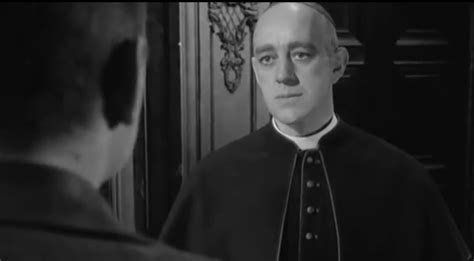
Carne vale!
(Meat farewell)
= carnivale!
One thing everybody here should be doing this weekend is having fun. Celebrating Mardi Gras is fun where people are Catholic, because Mardi Gras is authentic where people keep Lent. That’s right; in order to enjoy Mardi Gras, one must also observe Lent. Mardi Gras finds its joy in anticipating the fasting, prayer, and almsgiving of Lenten penance. We do penance because of our sins, our lack of righteousness, our poverty of goodness. We need the mercy of God in Christ. Especially when it comes late as it does this year, we realize we need Lent. Anticipating that, we take a sip of Mardi Gras.
The other thing you should be doing this weekend is planning your Lenten penance. Don’t settle for the cartoon notion of Lent: “This year I am giving up (insert one: a) chocolate; b) dessert; c) beer; d) other food product).” Remember: Lent is not a diet. Lent should leave us leaner, but that’s a side effect, not the goal. Devise your discipline according to these three principles, and you will have many reasons to be grateful.
Seek the silence. Our days are filled with so much noise, and not just audio but also visual, mental, and social. All of it, all of it, misshapes our relationships and understanding. This Lent, turn it off: the radio in the car, the ear-buds while you exercise, the television in the home, the web-browser on the screen. Sure, make specific exceptions for yourself: except when I need to check the traffic and weather together on the eights; except for watching March Madness; except for ordering Mom’s birthday present online. Break the habit of consuming audio and visual sludge! Get rid of the constant noise, the default distraction of hypnotizing visuals, the aimless poking about the web for useless information and harmful stimulation. Be still and know that I am God. (Psalm 46:10)
Seek the other. Do not reduce Lent to your personal goal, where you yourself are the principal beneficiary of your new self-control (in your waistline, your budget, or your productivity). Offer something to someone else. “Giving alms” is indispensable to a good Lent; that includes but is not limited to giving money and other gifts to the poor. It also means giving time to the lonely, attention to the ignored, and love to the one we have so much trouble loving. Remember, too, what a gift it is to ask someone to help you. Life is not solitary; neither is our struggle against sin. Your Lent should be not private, but personal – and therefore interpersonal. Seek also the One who desires your company in prayer. Let us confidently approach the throne of grace to receive mercy and favor, and to find help in time of need. (Heb 4:16)
Seek the cross. Jesus Christ is never more fully revealed as God than in His death on the cross. If you would share that divinity, that holiness, share too his cross. Put aside something that you cannot picture yourself living without. Give a gift you think you cannot afford. Take up a promise, burden, or responsibility you think you cannot carry. Then look at your crucifix, each day. The real sacrifice of the cross is available for you at every Mass, so add one more Mass to your week, i.e., every Wednesday near your office, or every Thursday after you drop off the kids. Behold how the Cross of Christ stands revealed as the Tree of Life!
If there is some pain or privation in your life not by your own fault or your own choosing, then Lent gives you something to do with it. Your illness, your embarrassment or failure; your pain, your mistreatment by a false friend; your devaluation at work. Embrace it as your Lenten cross, what you and Jesus are doing together this Lent.
So, yes, eat less. Wear your ashes until they rub away. Eat fewer sweets and fewer treats. Go to Stations of the Cross on meatless Fridays and write bigger checks to help folks who need. Give your full attention to somebody who never gets it. Talk less and pray more. That is the start. Take it higher. Raise the stakes, and Our Lord will not fail to raise the grace.
Take it seriously, and Lent will be one of the best times of your whole year. And it will make your Mardi Gras that much better, too.
Monsignor Smith


